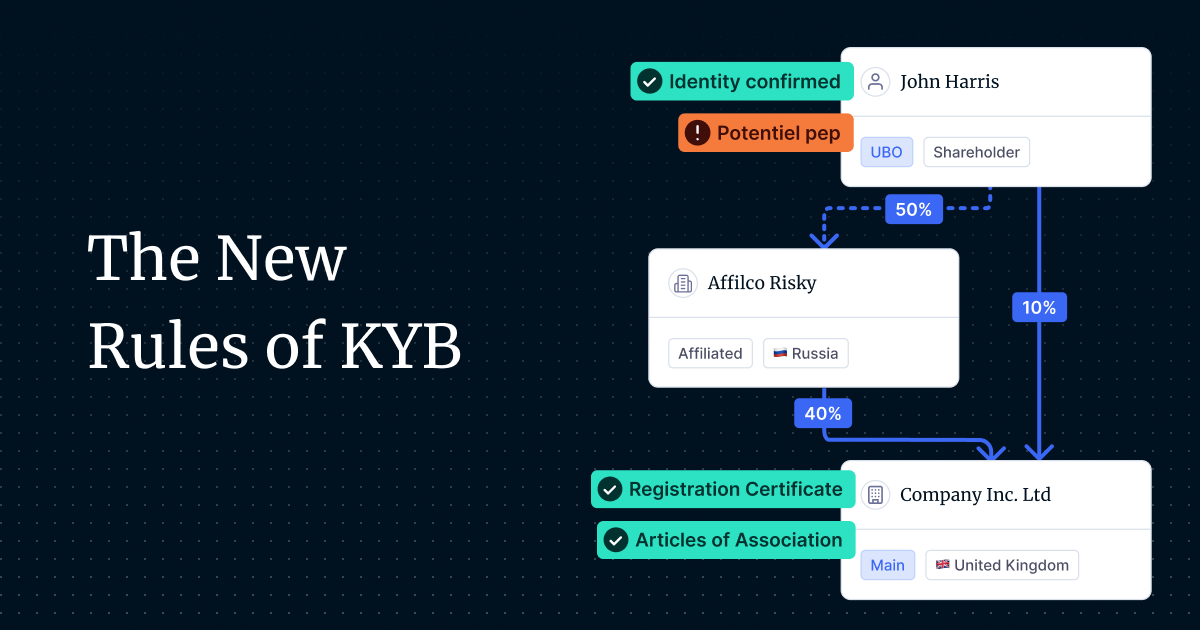Danish bank Nordea charged over money laundering cases
Regulators officially brought charges to Nordea stating it violated the AML Act several times from 2012 to 2015. The bank was accused of insufficient investigation of customer transactions and disregarding warnings related to currency exchange transactions. It is suspected that 3.5 billion euros that have flowed into the bank was linked to money laundering actions.
Why is it relevant?
As one of the leading banks in the Nordics, Nordea should set the example of respecting regulatory compliance.
Read more about Nordea charges
Payeer was fined 9.3 million euros for Russia sanctions violations
Lithuania fined crypto firm, Payeer, for Russia-related sanctions violations and money laundering failures. According to Lithuania’s regulator, Payeer failed to properly identify customers in order to not lose income. Russian customers were offered a range of services, including storage services and crypto wallets.
Why is it relevant?
Payeer is yet another crypto company that prioritizes income over compliance. Within 18 months, the company onboarded over 213,000 customers and reached 164 million euros in revenue.
More about Payeer sanctions violations
DBS Bank fined $1.3 million for non-compliance
The Hong Kong Monetary Authority (HKMA) found that DBS Bank failed to adequately monitor business relationships, conduct enhanced due diligence in high-risk situations, and keep proper records between 2012 and 2019. DBS has acknowledged the findings and stated that it has since improved its anti-money laundering controls.
Why is it relevant?
DBS, one of Southeast Asia's largest banks, had previously been involved in a billion-dollar money laundering scandal in Singapore in 2023. Earlier this year, DBS announced a strategic partnership allowing instant cross-border payments. With inadequate AML procedures in place, this could open a way for illicit money transfers on a larger scale.
Citi faces new penalties of $135.6 million
Citi has been fined $135.6 million by the Office of the Comptroller of the Currency (OCC) and the Federal Reserve for failing to make sufficient progress in addressing issues related to data quality, risk management, and internal controls. These penalties add to enforcement actions from October 2020, which aimed to modernize Citi's technological infrastructure. Despite some progress, persistent weaknesses, particularly in data integrity, remain. The OCC's exams last fall revealed Citi failed to meet its claimed progress, and further issues were identified by the Federal Reserve and Citi's internal audit unit. The new order mandates Citi to refocus its corrective actions and ensure appropriate resource allocation.
Why is it relevant?
This shows the importance of a unified, modern infrastructure. As we can see relying on legacy technologies can not only lead to inefficiencies but also high penalties. To effectively manage risk and ensure the highest quality data, businesses need to rely on modern and comprehensive infrastructure.
FCA requests banks to ditch EDD for PEPs
FCA requests the UK’s financial institutions to remove excessive checks of PEPs, those entrusted with a prominent public function, and their families. Financial firms must improve the treatment of PEPs to ensure politicians and their families are not being treated unfairly. The FCA began a review after Coutts, a private bank, abruptly closed Nigel Farage’s accounts after judging him a reputational risk.
Why is it relevant?
The FCA also called financial institutions to increase training for personnel responsible for PEPs. The regulator also requested businesses to consider the actual risk posed by PEPs and suggested that UK-based PEPs should be considered as lower-risk clients.
An arm of Coinbase fined £3.5m by FCA
FCA fined CB Payments Ltd, a UK-based subsidiary of Coinbase, saying it had enabled crypto trading by high-risk clients. Back in 2020, FCA ordered the company to address the gaps in its financial crime control framework. Subsequently, no high-risk customers were to be onboarded until the well-established framework was in place. Despite the restrictions, CBPL onboarded over 13,000 high-risk customers who conducted transactions totaling $226m, stoking concerns about potential money laundering.
Why is it relevant?
It shows the importance of having a robust financial crime control framework in place. It’s essential to avoid business operations disruptions and fines related to non-compliance as well as potential risks associated with serving high-risk customers.
The regulators ain’t resting. As more elaborate ways of money laundering are emerging, the regulatory bodies work hard to prevent illicit actions.
We’re curious to see how this landscape is about to evolve. Stay tuned to get more updates soon or Book a demo to chat about your compliance needs.





.png)
